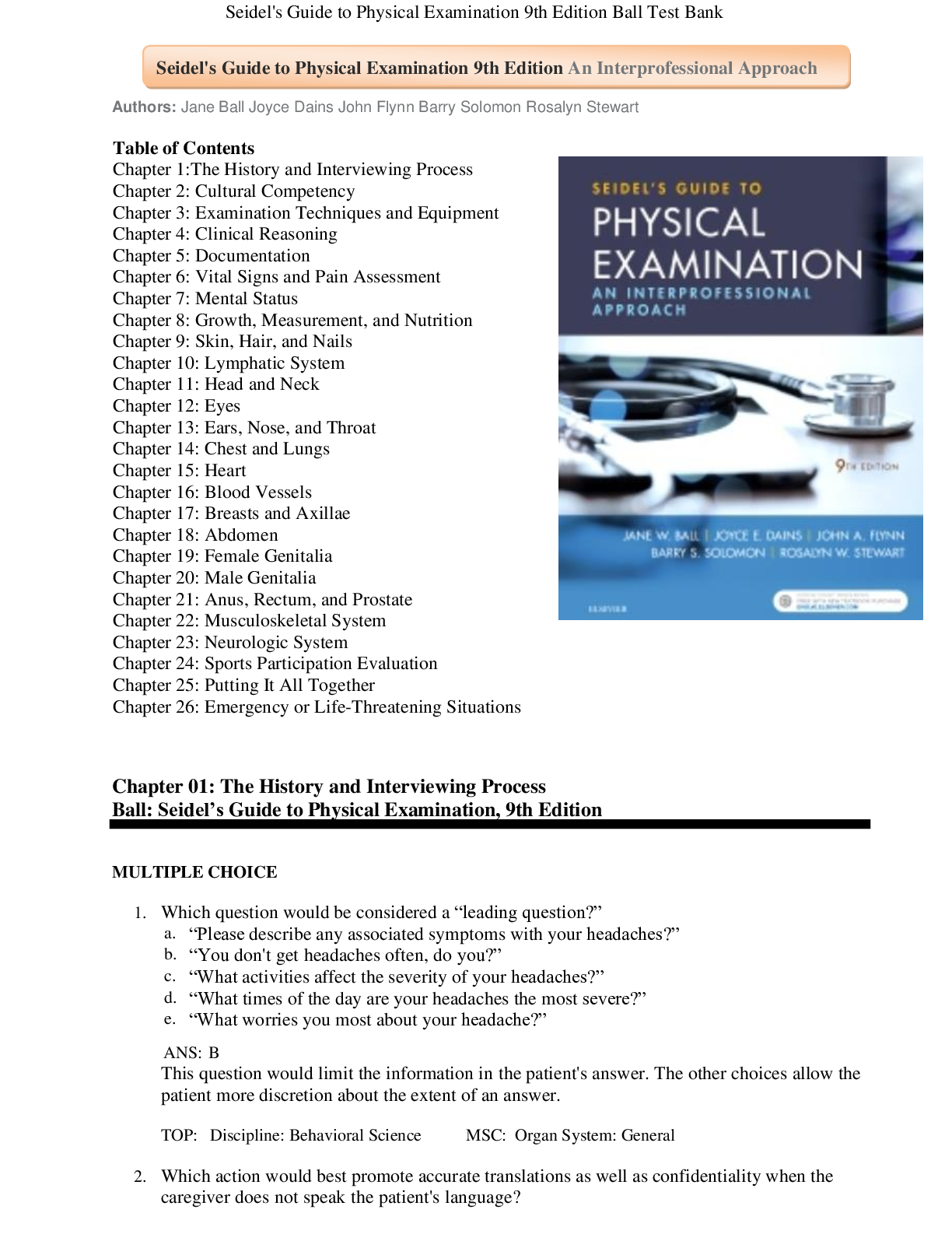*NURSING > EXAM > Bates’ Guide to Physical Examination and History Taking, 12th Edition Test Bank. Chapter 11 (All)
Bates’ Guide to Physical Examination and History Taking, 12th Edition Test Bank. Chapter 11
Document Content and Description Below
Bates’ Guide to Physical Examination and History Taking, 12th Edition Chapter 11: The Abdomen Multiple Choice 1. A 52-year-old secretary comes to your office, complaining about ac... cidentally leaking urine when she coughs or sneezes. She says this has been going on for about a year now. She relates that she has not had a period for 2 years. She denies any recent illness or injuries. Her past medical history is significant for four spontaneous vaginal deliveries. She is married and has four children. She denies alcohol, tobacco, or drug use. During her pelvic examination you note some atrophic vaginal tissue, but the remainder of her pelvic, abdominal, and rectal examinations are unremarkable. Which type of urinary incontinence does she have? A) Stress incontinence B) Urge incontinence C) Overflow incontinence Ans: A Chapter: 11 Feedback: Stress incontinence usually occurs when the intra-abdominal pressure goes up during coughing, sneezing, or laughing. This is usually due to a weakness of the pelvic floor, with inadequate muscle support of the bladder. Vaginal deliveries and pelvic surgery are often associated with these symptoms. Usually female patients are postmenopausal when stress incontinence begins. Kegel exercises are usually recommended to strengthen the pelvic floor muscles. 2. A 46-year-old former salesman presents to the ER, complaining of black stools for the past few weeks. His past medical history is significant for cirrhosis. He has gained weight recently, especially around his abdomen. He has smoked two packs of cigarettes a day for 30 years and has drunk approximately 10 alcoholic beverages a day for 25 years. He has used IV heroin and smoked crack in the past. He denies any recent use. He is currently unemployed and has never been married. On examination you find a man appearing older than his stated age. His skin has a yellowish tint and he is thin, with a prominent abdomen. You note multiple “spider angiomas” at the base of his neck. Otherwise, his heart and lung examinations are normal. On inspection he has dilated veins around his umbilicus. Increased bowel sounds are heard during auscultation. Palpation reveals diffuse tenderness that is more severe in the epigastric area. His liver is small and hard to palpation and he has a positive fluid wave. He is positive for occult blood on his rectal examination. What cause of black stools most likely describes his symptoms and signs? A) Infectious diarrhea B) Mallory-Weiss tear C) Esophageal varices Ans: C Chapter: 11 Feedback: Varices are often found in alcoholic patients, but only when they have a diagnosis of significant cirrhosis. This patient has symptoms of cirrhosis, including jaundice, ascites, spider hemangiomas, and dilated veins on his abdomen (caput medusa). 3. A 21-year-old receptionist comes to your clinic, complaining of frequent diarrhea. She states that the stools are very loose and there is some cramping beforehand. She states this has occurred on and off since she was in high school. She denies any nausea, vomiting, or blood in her stool. Occasionally she has periods of constipation, but that is rare. She thinks the diarrhea is much worse when she is nervous. Her past mNeUdRicSalIhNisGtoTrBy .isCnOotMsignificant. She is single and a junior in college majoring in accounting. She smokes when she drinks alcohol but denies using any illegal drugs. Both of her parents are healthy. Her entire physical examination is unremarkable. What is most likely the etiology of her diarrhea? A) Secretory infections B) Inflammatory infections C) Irritable bowel syndrome D) Malabsorption syndrome Ans: C Chapter: 11 Feedback: Irritable bowel syndrome will cause loose bowel movements with cramps but no systemic symptoms of fever, weight loss, or malaise. This syndrome is more likely in young women with alternating symptoms of loose stools and constipation. Stress usually makes the symptoms worse, as do certain foods. 4. A 42-year-old florist comes to your office, complaining of chronic constipation for the last 6 months. She has had no nausea, vomiting, or diarrhea and no abdominal pain or cramping. She denies any recent illnesses or injuries. She denies any changes to her diet or exercise program. She is on no new medications. During the review of systems you note that she has felt fatigued, had some weight gain, has irregular periods, and has cold intolerance. Her past medical history is significant for one vaginal delivery and two cesarean sections. She is married, has three children, and owns a flower shop. She denies tobacco, alcohol, or drug use. Her mother has type 2 diabetes and her father has coronary artery disease. There is no family history of cancers. On examination she appears her stated age. Her vital signs are normal. Her head, eyes, ears, nose, throat, and neck examinations are normal. Her cardiac, lung, and abdominal examinations are also unremarkable. Her rectal occult blood test is negative. Her deep tendon reflexes are delayed in response to a blow with the hammer, especially the Achilles tendons. What is the best choice for the cause of her constipation? A) Large bowel obstruction B) Irritable bowel syndrome C) Rectal cancer D) Hypothyroidism Ans: D Chapter: 11 Feedback: Many metabolic conditions can interfere with bowel motility. In this case the patient has many symptoms of hypothyroidism, including cold intolerance, weight gain, fatigue, constipation, and irregular menstrual cycles. On examination, thyromegaly and delayed reflexes can help to make the diagnosis. Medication will usually correct these symptoms. [Show More]
Last updated: 2 years ago
Preview 1 out of 17 pages

Buy this document to get the full access instantly
Instant Download Access after purchase
Buy NowInstant download
We Accept:

Reviews( 0 )
$6.00
Can't find what you want? Try our AI powered Search
Document information
Connected school, study & course
About the document
Uploaded On
Apr 27, 2021
Number of pages
17
Written in
Additional information
This document has been written for:
Uploaded
Apr 27, 2021
Downloads
0
Views
88



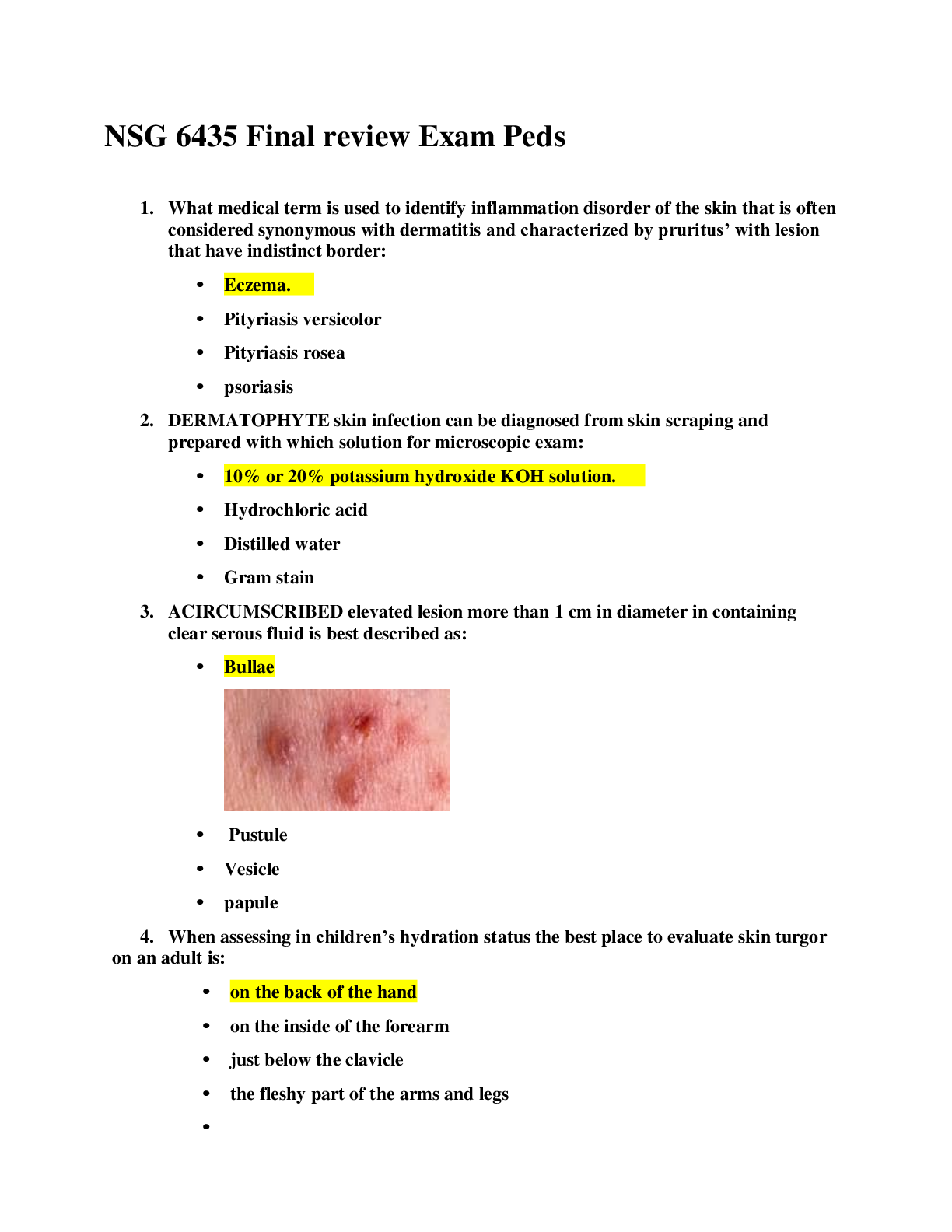
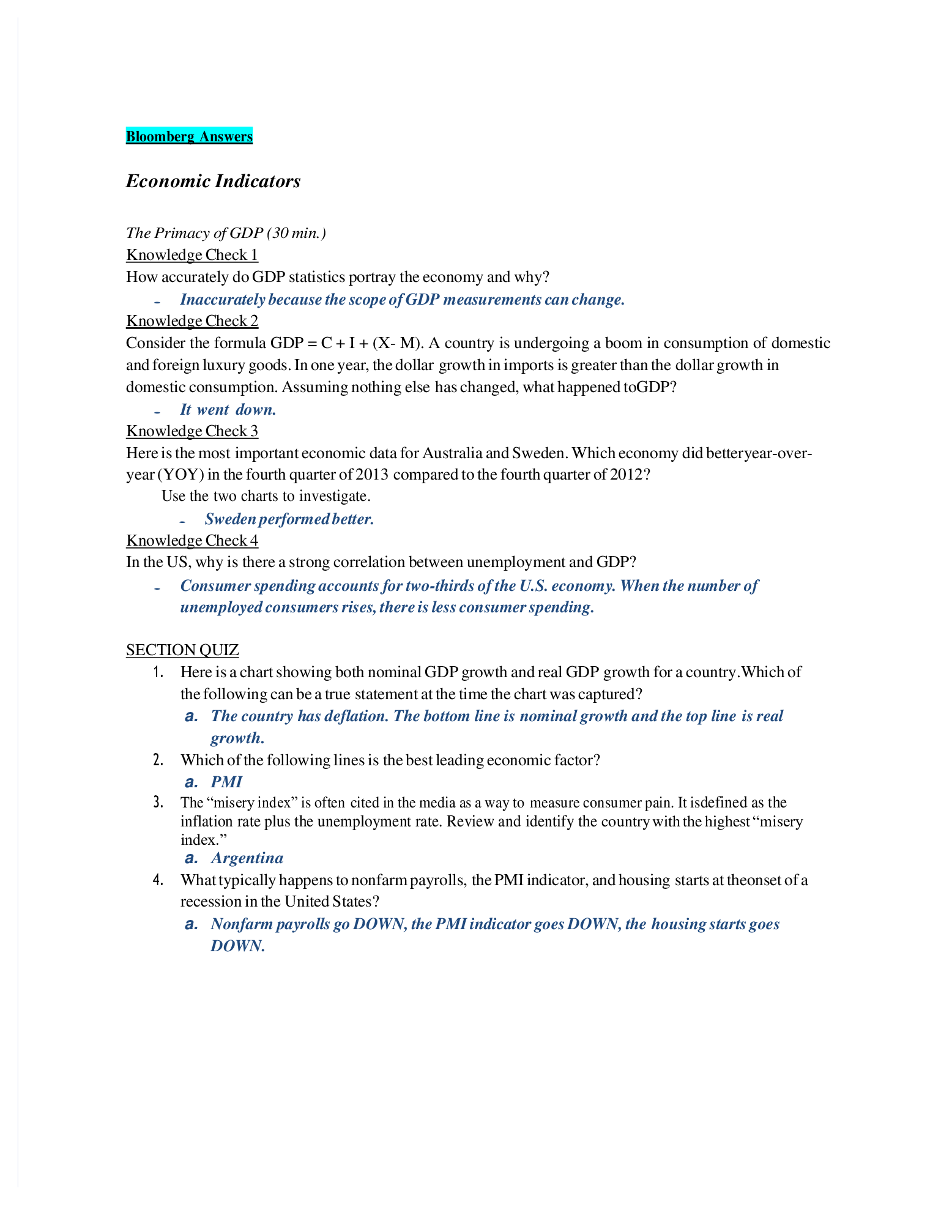
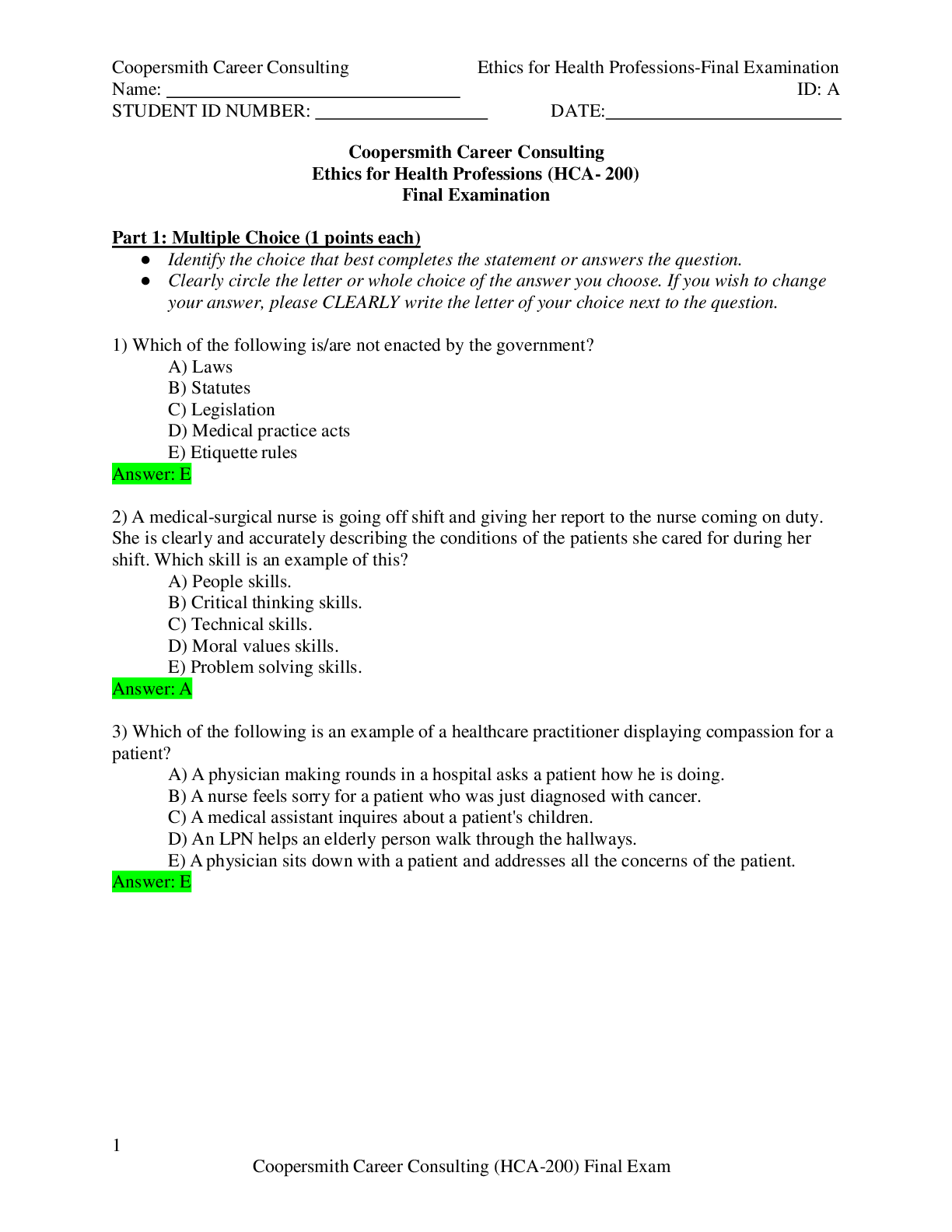


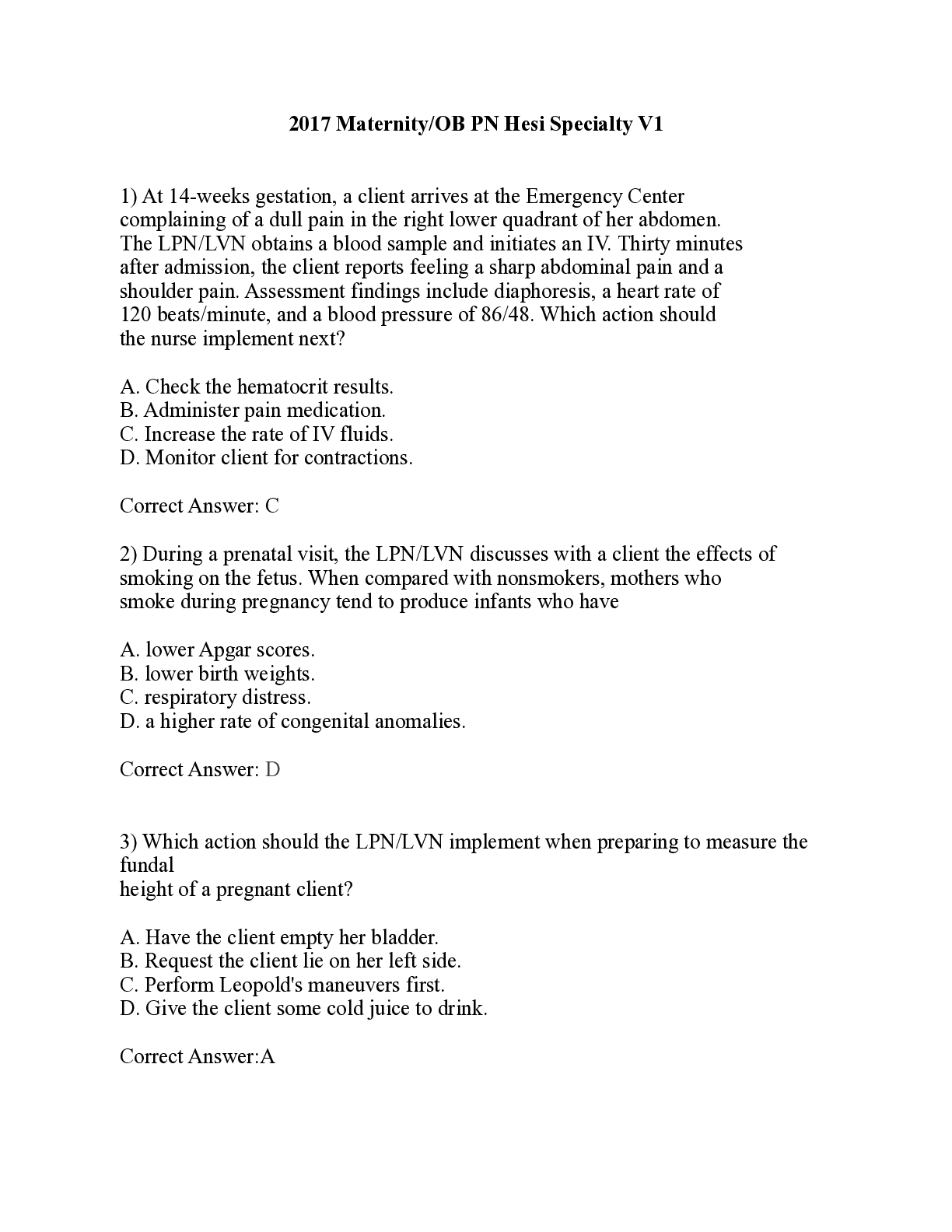
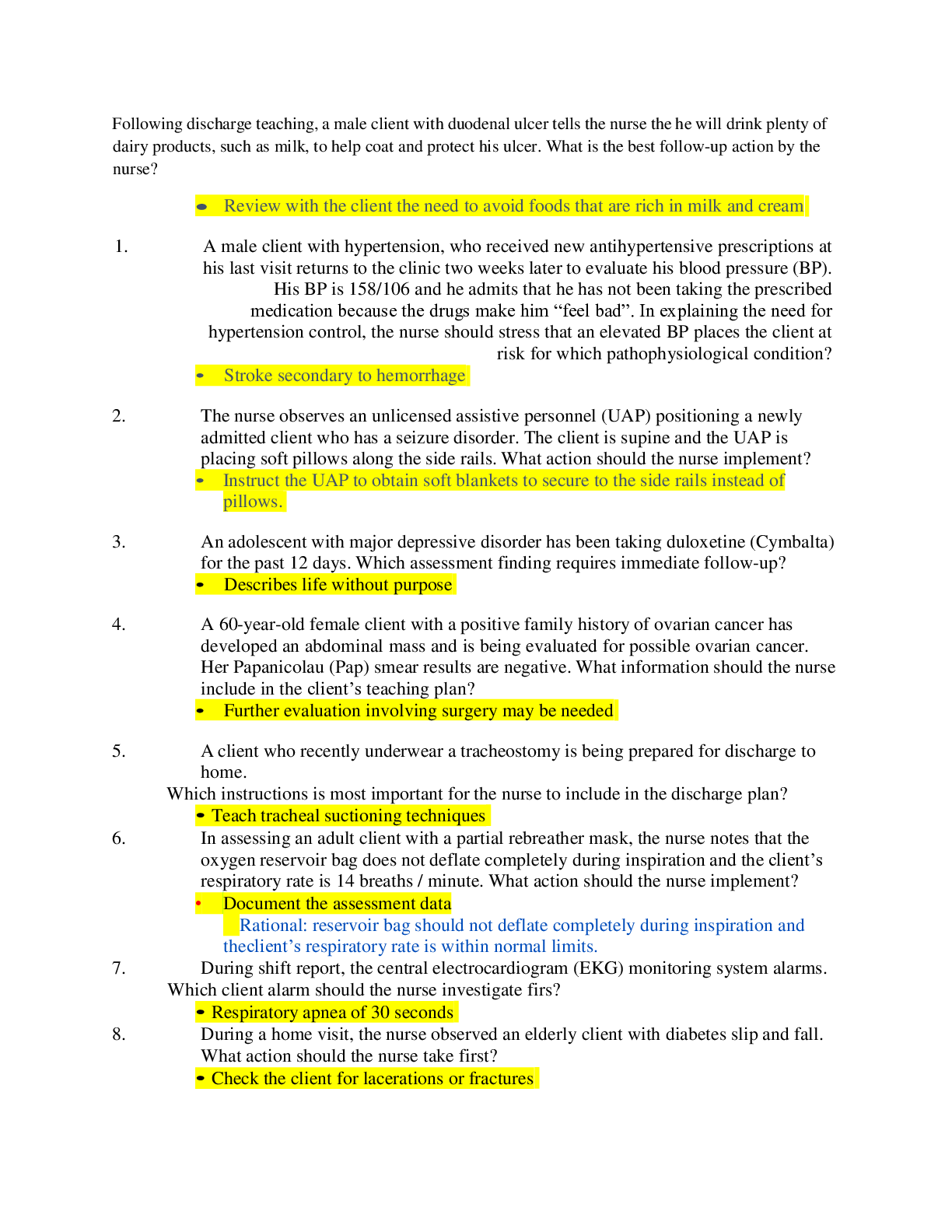
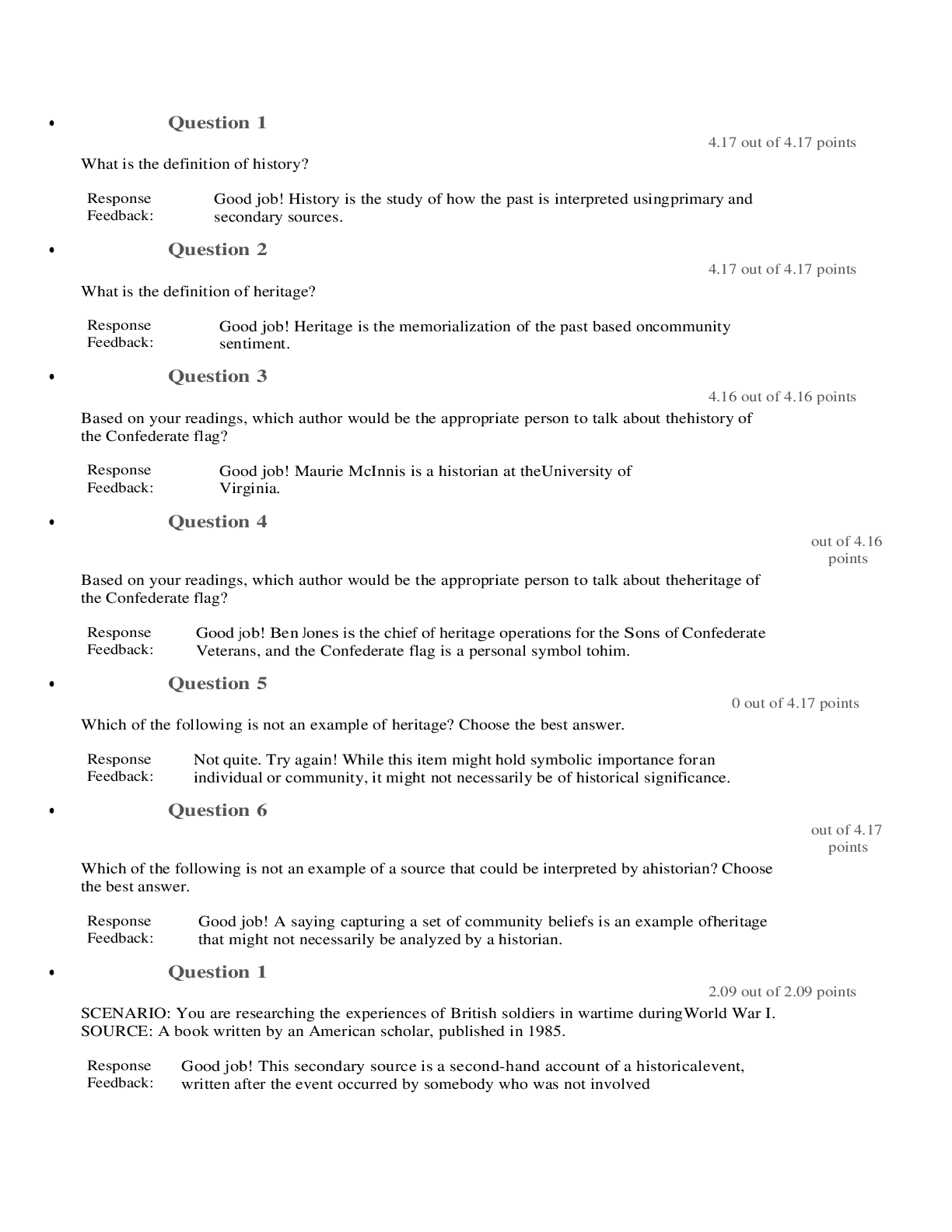





.png)



